Interview: H.E. Mr. Alexander Carter BING, Ambassador of the Republic of the Marshall Islands to Japan
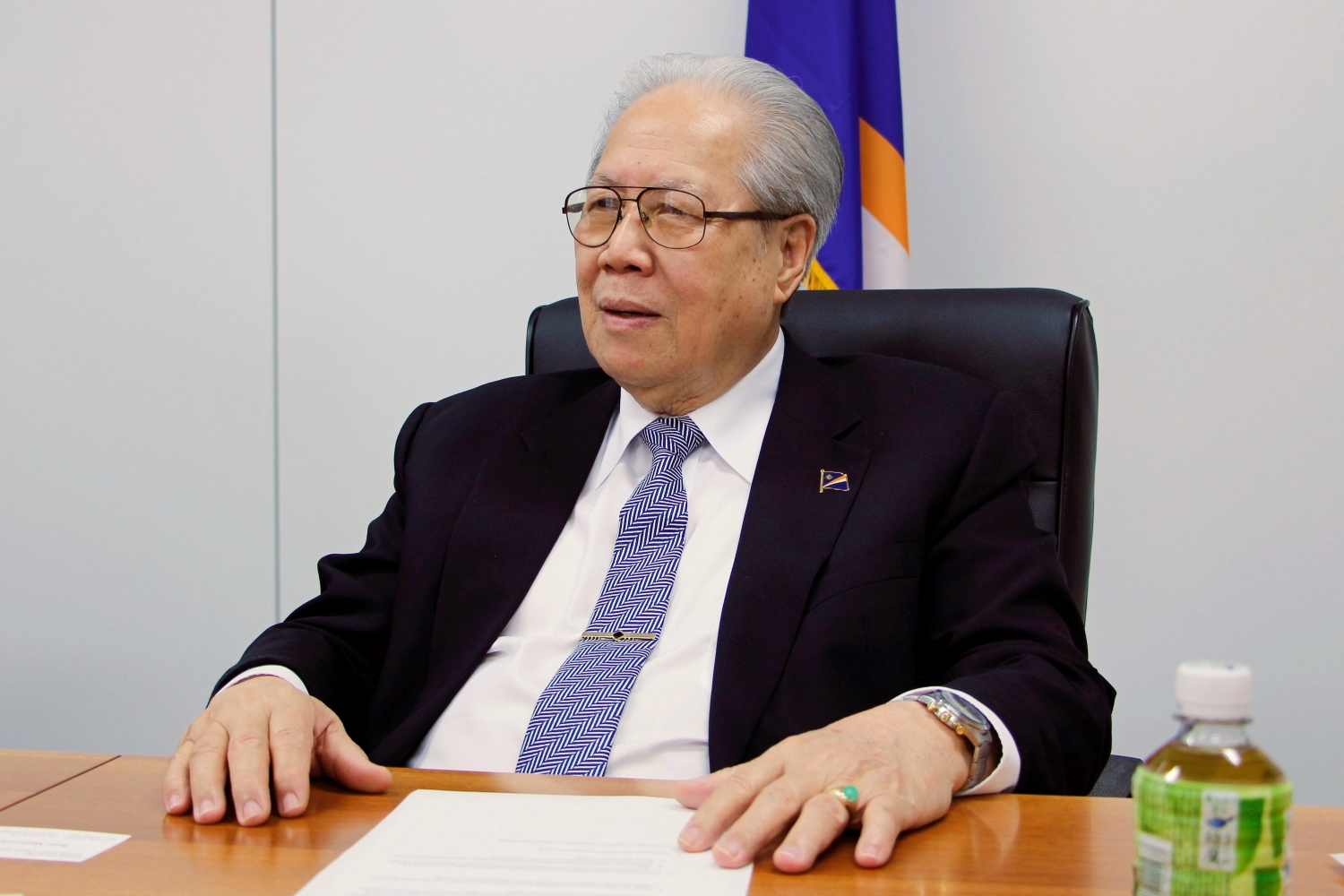
1. Please tell us about the Embassy and the Embassy staff.
Currently, there are three Marshallese, one Japanese, and one Filipino of Japanese descent working at the Embassy. We also have an intern who recently graduated from a university in the Philippines.
I myself was born and raised in Fiji, returned with my family to my father's home country of the Marshall Islands in 1968, and have worked in the private sector and government in the Marshall Islands since. In the Marshall Islands, ambassadors are appointed by the President. In 2002, I was appointed Ambassador to Taiwan, a position I held until 2008, and in March 2022 I was appointed Ambassador to Japan. Lisa Lajkam Case, Deputy Chief of Mission at the Embassy in Japan, is a career diplomat who has served in Japan since 2021. While our Embassy's roles is to strengthen relations with Japan, the Embassy also has jurisdiction over Brunei, Thailand, India, Mongolia, and Myanmar. Diplomatic documents and requests from Singapore and the Philippines also go through this embassy. I mainly work in Japan, but also act on behalf of the President or the Minister of Foreign Affairs when they are unable to attend important diplomatic events.
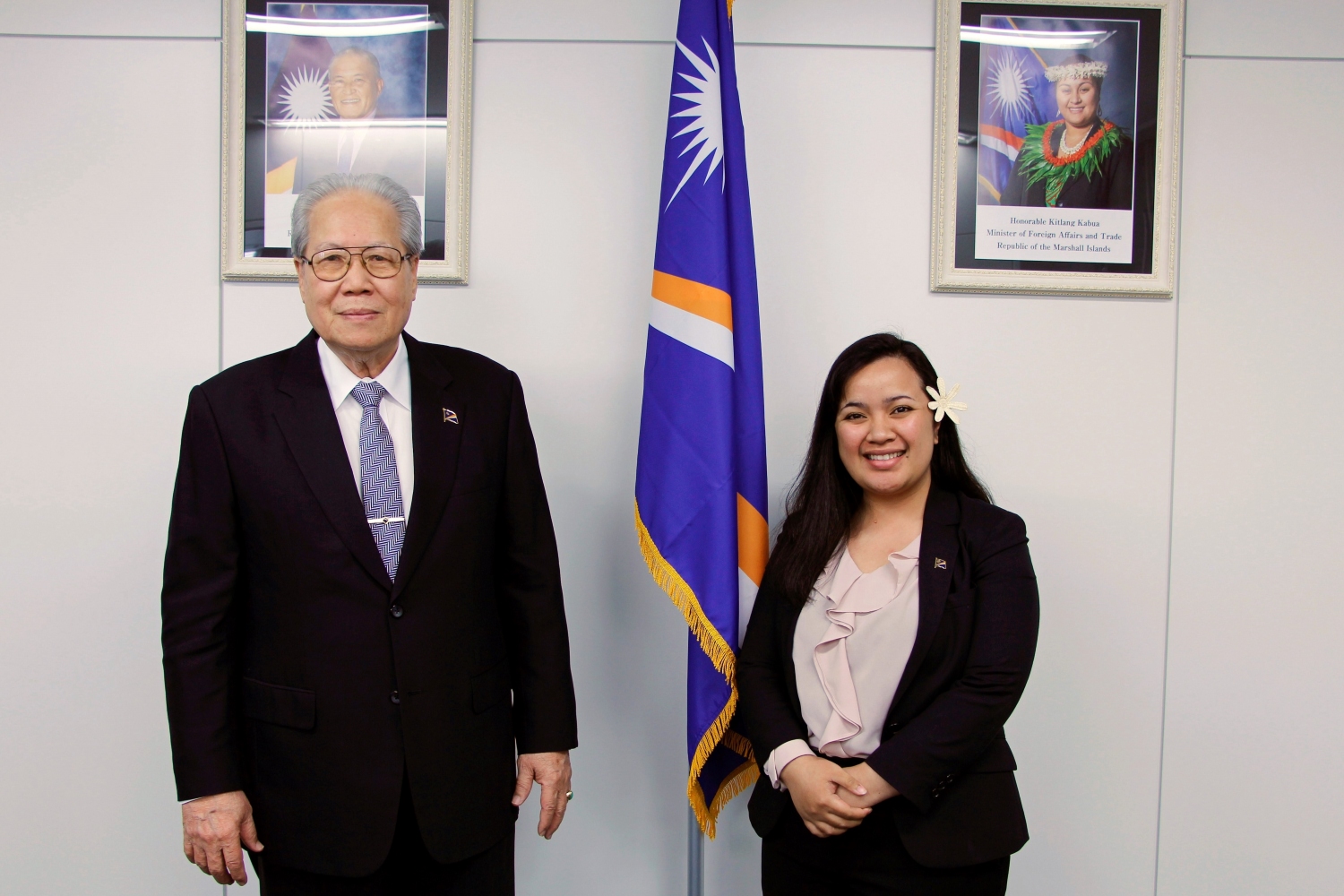
Parliamentary Composition: The Marshall Islands consist of 29 atolls and 5 islands, for a total of 34 islands. The constitutional government of the Marshall Islands began in 1976 and the islands became independent in 1986. Thirty-three members of Congress are elected from these islands, and the President is chosen from among the members of Congress. The president elects 10 members of the cabinet from among the senators. The term of office of the legislators is four years.
History: Germany was the first foreign power to administer the Marshall Islands from 1887 until World War I. There was a military occupation by Japan in 1914. Japan ruled until the end of World War II. After the war, the U.S. ruled until independence in 1986. The Marshall Islands have a significant population of Japanese descent and strong ties to Japan. Formal diplomatic relations with Japan were established in 1986.
Nuclear Legacy: The Marshall Islands and Japan share a nuclear legacy. Japan experienced the devastation of the atomic bombs dropped on Hiroshima and Nagasaki, as well as the Fukushima nuclear accident caused by a natural disaster. The Marshall Islands were exposed to radiation from 67 nuclear weapons tests conducted between 1946 and 1958, and many people were forced to flee their homes. The largest test, known as "Bravo," took place in March 1954 on Bikini Island, where a Japanese fishing boat was exposed to radiation. Today, many Marshall Islanders continue to suffer from the loss of culture and land due to forced displacement, and the environmental and ecological effects are still ongoing. Although tragic, I believe that the Marshall Islands and Japan can come to understand each other's experiences with radiation exposure.
Inheritance of Cultural Traditions: The Marshall Islands are divided into two regions, Rālik (Western) and Ratak (Eastern), each with its own dialect. Despite the geographical distance between the islands, they are able to understand each other's dialects without difficulty. It is believed that the reason a common language is spoken throughout the Marshall Islands has to do with the skillful navigation techniques of the Marshallese people.
The Marshallese inherited a unique knowledge of navigating the vast oceans by observing the stars and waves, which is known as traditional navigation. This technique has attracted the attention of Western researchers, but because it is knowledge passed down orally from parent to child, the full extent of this knowledge has not been revealed or documented. The ability to read waves and their interaction with islands is a skill that has been woven by the Marshallese for centuries.
Ongoing activities are being undertaken to pass this skill on to the next generation. One such activity is the WAM (Waan Aelõñ in Majel) NGO, which teaches young people traditional outrigger canoe building techniques. WAM has been active for almost 30 years. In addition to teaching how to build full-scale canoes, it also offers social programs for young people as well and also teaches other cultural heritage of the Marshall Islands. By integrating traditional practices with modern elements, WAM seeks to nurture young people and pass on traditional knowledge and skills.
Along with activities by organizations such as WAM, intergenerational transmission of traditional culture and knowledge within families is also important. For example, there are many traditional medicinal herbs in the Marshall Islands, which are still practiced in many families today. There is also a growing interest in documenting and understanding these practices from a scientific perspective. The transmission and utilization of traditional wisdom is an important element in addressing sustainable development while respecting cultural diversity.
These activities aim to nurture the Marshall Islands people's ability to survive in today's society, taking pride in their culture and traditions. By passing on and further developing these traditions to the next generation, it is hoped that they will promote the prosperity and sustainability of the Marshall Islands NGO, WAM (https://www.canoesmarshallislands.com/)
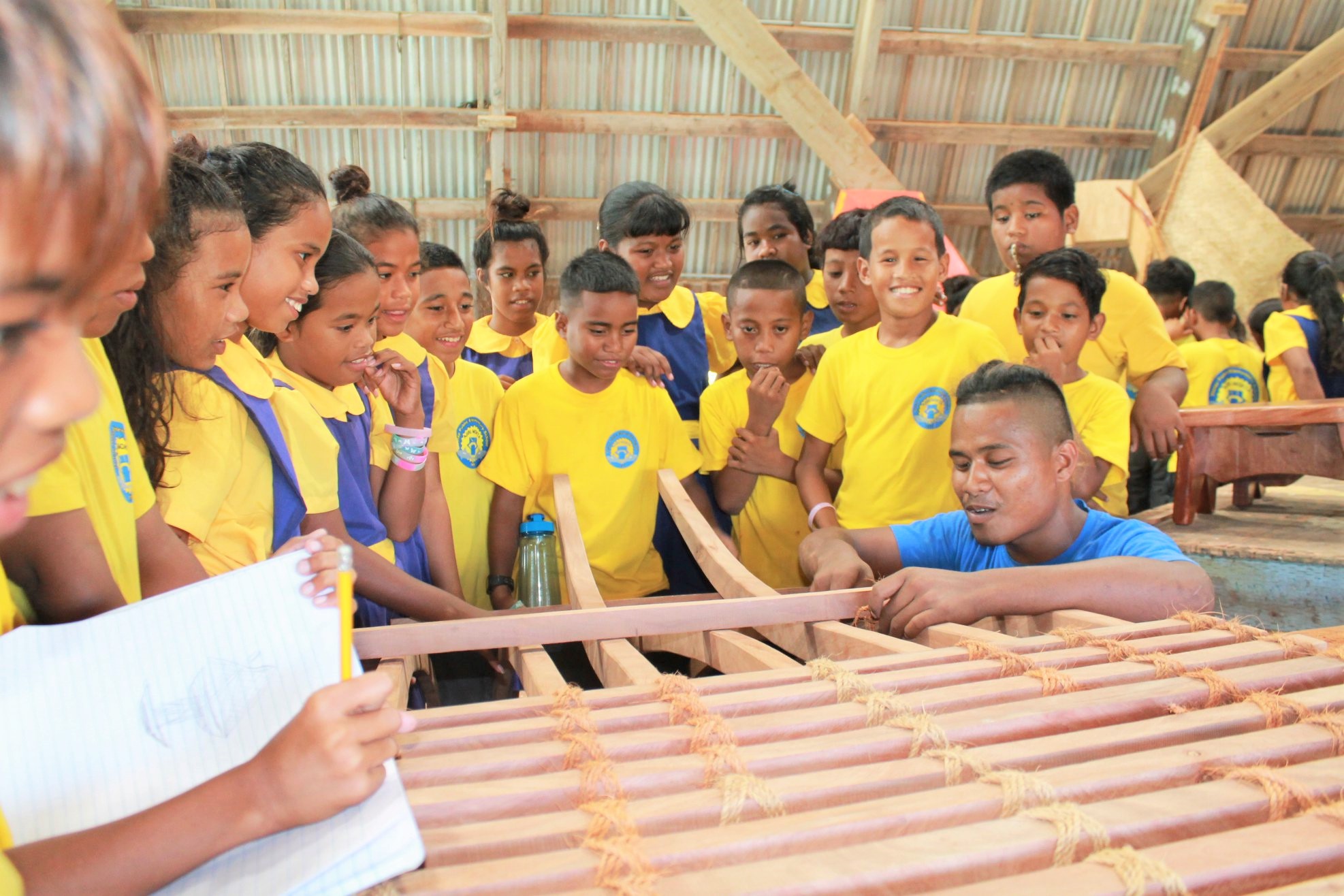
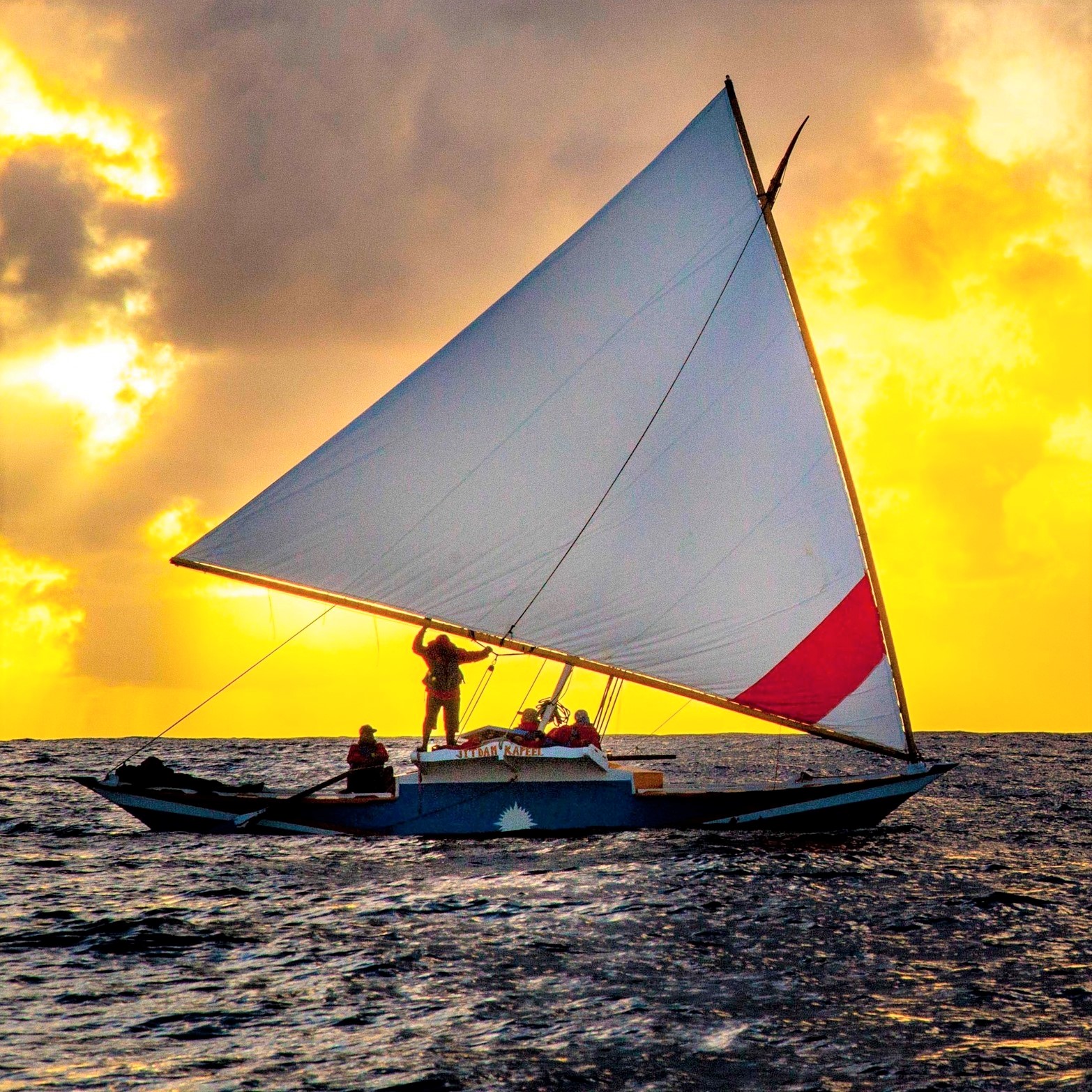
(Activities of WAM (Photo provided by WAM))
Changing diets and environmental issues: Common local foods include a variety of natural products such as breadfruit, fish, crab, and lobster, etc. However, people are now cooking these foods and selling them, for example, on Kwajalein Atoll, where there are many Americans, and using the proceeds to buy rice, sugar, flour, corn, canned goods, and carbonated drinks. As people become more dependent on imported foods and move away from traditional diets, diabetes and hypertension are on the rise.
In addition, the packaging materials used for imported food products are contributing to environmental problems. We are working to solve these problems through education, but further government support is needed. In order to achieve a sustainable lifestyle, we need to restore traditional lifestyles that value natural resources and find solutions to environmental and health problems.
Climate Change: The Marshall Islands are a low elevation atoll and are particularly vulnerable to the effects of climate change, especially flooding and inundation from rising sea levels. As long as the melting of Arctic and Antarctic ice continues, sea level rise will continue, and the Marshall Islands will always face this challenge. The highest point on the islands is only 15 feet, so the effects of sea level rise are obvious, even when tankers are berthing. Government and community measures vary. Sea walls are being built or reclaimed in areas at risk of flooding, evacuation plans are being developed, and offshore land is being purchased. For example, some local governments have purchased land in Hawaii to secure evacuation and settlement sites. However, international support and comprehensive solutions will be needed, as the challenges will continue as long as sea levels continue to rise.
Impact of COVID-19: It was relatively minor in the Marshall Islands. Borders were closed during the pandemic, during which time vaccination was promoted. After the borders were liberated, the number of cases and deaths were low, thanks to the weakened infectivity of the virus. The supply of vaccines from the U.S. allowed many citizens to be vaccinated. I myself was vaccinated for the fourth time when I arrived in Japan in March 2022. At that time, entry from abroad was still restricted in Japan, and only diplomats were allowed to enter.
4. Please tell us about the youth in the Marshall Islands.
In the Marshall Islands, youth have several educational options. Some go to schools outside the country, such as Xavier High School in the Federated States of Micronesia, but other options include Assumption High School in Majuro and Queen of Peace High School in Ebey, both in the Marshall Islands. After high school, it is also common for students to attend the Junior College of the Marshall Islands (CMI). Some outstanding students also receive scholarships to study at universities in the U.S. and Asia.
Regarding higher education in Asia, some students study at Japanese universities. Recent case is to attend a medical school in Taiwan, receive training at a hospital in Taiwan, and complete training at a hospital in the Marshall Islands.
As for professions, doctors, lawyers, accountants, airline pilots, and captains are in demand, but brain drain is a problem. In the aviation industry, the shortage of airline pilots is also an issue, as many are employed by Kwajalein (Kwajalein) Air Base and Asia Pacific Airlines. In the shipping industry, there are local navigators, but few captains with formal licenses. In recent years, there have been reports of some young people being trained and working as captains in Singapore. We hope that this will lead to more captains with accredited licenses. There is a demand for specialists in various fields, but the brain drain is troubling. In the future, I hope that young people will return home and contribute by sharing their knowledge with the local people.
5. What do you think are the reasons behind the visibility of some Marshallese people in the international arena?
There could be several reasons, one of which would be the values articulated in the preface to the Constitution of the Republic of the Marshall Islands. There it is emphasized that the people of the Marshall Islands trust in God and value the life, liberty, identity, and rights of the people. They are proud of their ancestors who stood up to build their country and are committed to preserving the sacred heritage that has been passed down to them.
Archaeological evidence suggests that the ancestors of the Marshallese migrated across the sea from Taiwan. The adaptability and bravery of the Marshallese ancestors are characterized by their ability to sail through uncharted territory without fear. They also have a spirit of mutual respect and have peaceful relations with other islands, respecting their cultures and territories. And they have defended their land and culture from outside threats. These cultural values, nautical traditions, mutual respect, and a strong will to protect their identity combine to enable the people of the Marshall Islands to thrive in the international arena.
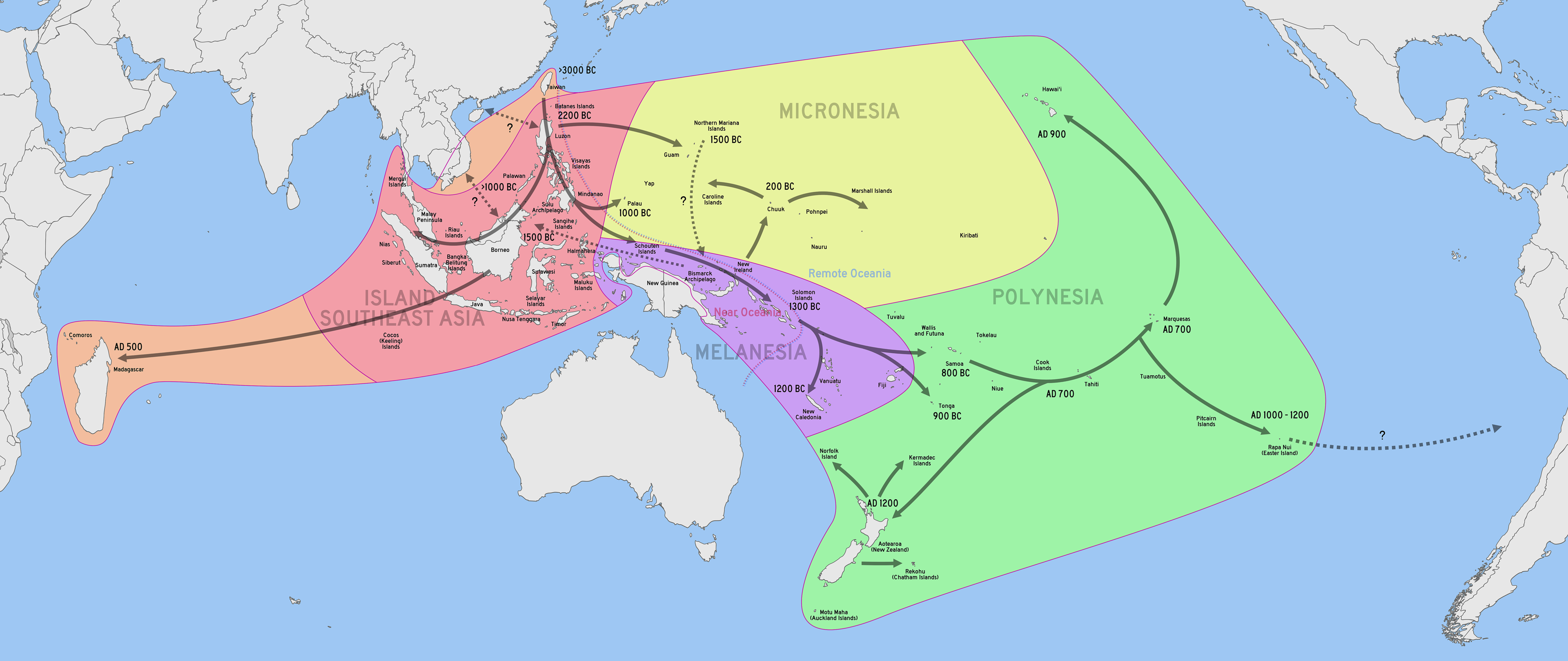
(Chronological dispersal of Austronesian people across the Pacific)
WHAT'S NEW
- 2025.1.12 UPDATE
PROJECTS
"Barbados A Walk Through History Part 15"
- 2024.12.4 UPDATE
PROJECTS
"Barbados A Walk Through History Part 14"
- 2024.9.17 UPDATE
PROJECTS
"Barbados A Walk Through History Part 13"
- 2024.7.30 UPDATE
EVENTS
"408th Lecture Meeting Regarding Global Issues"
- 2024.7.23 UPDATE
PROJECTS
"Barbados A Walk Through History Part 12"
- 2024.7.9 UPDATE
ABOUT
"GREETINGS FROM THE PRESIDENT JULY 2024"
- 2024.7.4 UPDATE
EVENTS
"APIC Supports 2024 Japanese Speech Contest in Jamaica"
- 2024.6.27 UPDATE
EVENTS
"407th Lecture Meeting Regarding Global Issues"
- 2024.5.21 UPDATE
EVENTS
"406th Lecture Meeting Regarding Global Issues"
- 2024.5.14 UPDATE
EVENTS
"405th Lecture Meeting Regarding Global Issues"




